
In my article titled 'Developing Lovable Products to Beat Competition' published in January issue I discussed lovable products. A product needs to have certain qualities for being loved. But quality is a very elusive concept. We all understand quality as something that makes the object desirable.
Beyond this universally accepted concept, quality means different things to different people. Some customers may give more priority to the looks, some may prefer more reliability, some others may look for a lightweight product, whereas another group may want one that costs less. To cater to these different needs the product has to address multiple things to be successful in the market.
Sometimes, we may need different product models to address these needs. In this article, we shall focus on the process of systematically addressing these varied requirements from a product.
There are various approaches for systematic product requirement analysis. We shall discuss a rather simple and popular technique called quality function deployment, or QFD. This is a process of listing the requirements simply and concisely, comparing various benchmark products, and systematically evolving the product definition and its manufacturing process.
For QFD we start with listing the product requirements. These requirements for a product come from various stakeholders. Part of it is from the people who will buy the product, then we have those who will use the product. Apart from these two groups we also need to address the requirements of those who sell, stock, and transport the product, the need of society at large, and the rules of the land.
If we fail to address all these varied needs, we shall end up with a bad quality product. So, our journey for product development has to start with discovering and documenting all these requirements.
This story is from the February 2023 edition of Electronics For You.
Start your 7-day Magzter GOLD free trial to access thousands of curated premium stories, and 9,000+ magazines and newspapers.
Already a subscriber ? Sign In
This story is from the February 2023 edition of Electronics For You.
Start your 7-day Magzter GOLD free trial to access thousands of curated premium stories, and 9,000+ magazines and newspapers.
Already a subscriber? Sign In
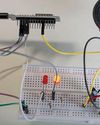
ESP32-Powered AUDIO-VISUAL SIREN
This sound alternator is designed to simulate the effects of a police siren, combining sound and light to create a dynamic audio-visual experience.
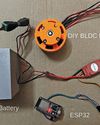
BLDC MOTOR With Web-Based Speed Control Using ESP32
Integrating wireless control into brushless direct current (BLDC) motor systems opens up exciting possibilities for applications such as remote-controlled cars, robots, and other innovative systems.
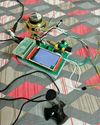
Pi Zero Portable BILINGUAL TRANSLATOR
This system is designed as a bilingual translator, leveraging the gTTS library to support multiple Indian languages, including English (en), Bengali (bn), Gujarati (gu), Hindi (hi), Kannada (kn), Malayalam (ml), Marathi (mr), Tamil (ta), Telugu (te), and Urdu (ur).
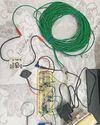
Op-Amp-Based VEHICLE THEFT DETECTOR
A simple, low-cost device can effectively alert homeowners or occupants if a parked vehicle is moved or tampered with.
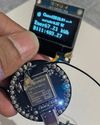
loT SMART METER With Dashboard
Energy meters in homes track electricity usage, enabling accurate billing by governments and providers.

Choose The Right Cloud Platform For Implementing loT PROTOCOLS
Working with loT protocols like MQTT, AMQP, and CoAP on cloud platforms is essential for developing scalable and efficient lol applications. The choice of the programming platform will depend on factors like project requirements, existing skills, and target devices. Leveraging the appropriate libraries and cloud services can enable seamless integration of lol devices with cloud-based applications.

Why TMR SENSORS Lead Next-Generation Design
TMR sensors are gaining traction in industries needing precision and power efficiency. What makes them the go-to choice for modern designs?
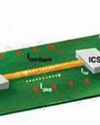
DESIGNING PCBs For EMI Management
Electromagnetic interference can derail your PCB’s performance. EMI management is not just a technical necessity but a hallmark of exceptional PCB design.

CUTTING COSTS, NOT CORNERS: Building Large Scale Applications With Open Source Software
Here are some strategies and best practices for leveraging open source to create enterprise-grade web and mobile applications without sacrificing quality or functionality.

"We Are One Of India's Very Few State Bodies To Manage The Entire Lifecycle Of The Electronics EcosystemFrom Approvals To Subsidies."
What is Gujarat State Electronics Mission GSEM), and how is it attracting major investments in electronics manufacturing, particularly semiconductor manufacturing, to Gujarat? To delve deeper, Electronics For You’s Nijhum Rudra spoke with Manish Gurwani, the head of GSEM. Here is what he revealed...